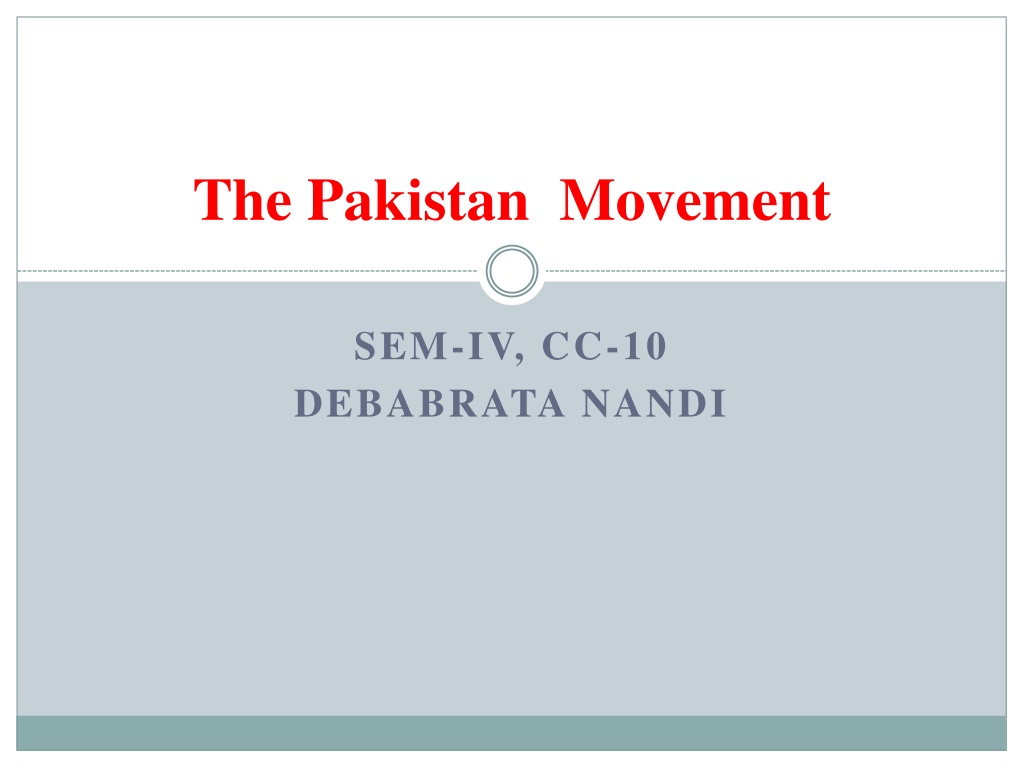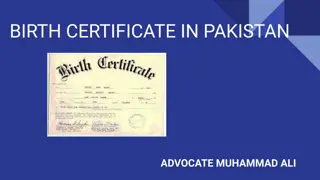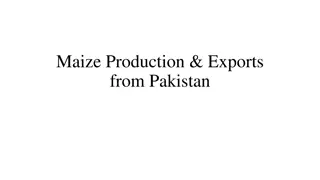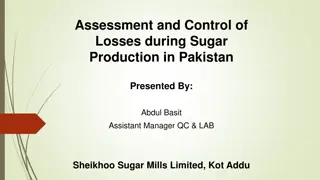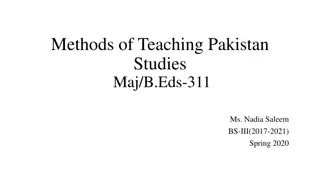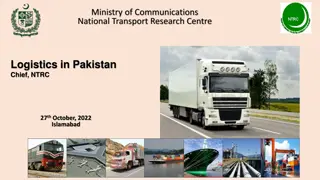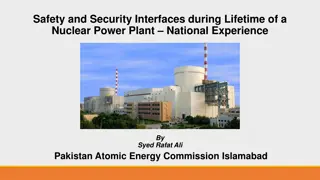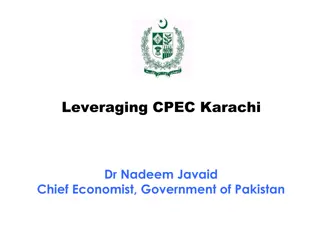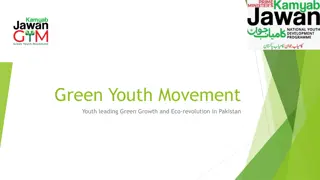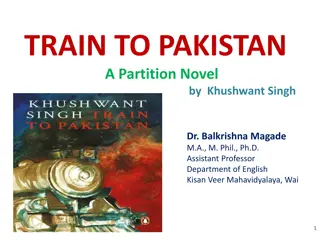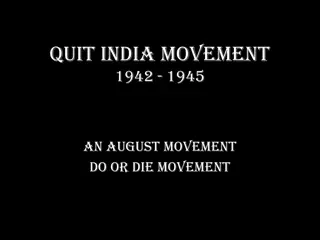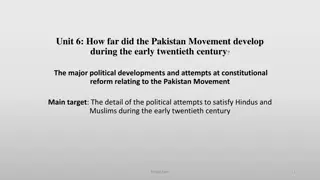The Pakistan Movement
The Pakistan Movement, spearheaded by figures like Sir Syed Ahmed Khan and Muhammad Ali Jinnah, advocated for the creation of a separate Muslim state due to perceived cultural and religious differences with Hindus. The Two Nation Theory, posited by Sir Syed, emphasized the distinct identities of Hindus and Muslims as separate nations. Despite early propositions by leaders like Sir Mohammad Iqbal and Rahmat Ali, it was the Lahore Resolution of 1940 that paved the way for the eventual establishment of Pakistan.
Download Presentation

Please find below an Image/Link to download the presentation.
The content on the website is provided AS IS for your information and personal use only. It may not be sold, licensed, or shared on other websites without obtaining consent from the author.If you encounter any issues during the download, it is possible that the publisher has removed the file from their server.
You are allowed to download the files provided on this website for personal or commercial use, subject to the condition that they are used lawfully. All files are the property of their respective owners.
The content on the website is provided AS IS for your information and personal use only. It may not be sold, licensed, or shared on other websites without obtaining consent from the author.
E N D
Presentation Transcript
The Pakistan Movement SEM-IV, CC-10 DEBABRATA NANDI
Two Nation Theory: first mention by Sir Syed Ahamed khan the founder of the Aligarh movement . He expounded his two nation theory in which he clearly said that the Hindus and the Muslims are two separate nations. These have different cultures and their gods and goddesses and religious places are different. According to him these two nations have no point of similarity and as such cannot live together.
It is believed that the idea of formation of consolidated North-West Indian Muslim State was first mooted by Sir Mohammed Iqbal in 1930. But all that he wanted was a lose federation and not a separate State of Pakistan.
In 1933, Muslim Under-Graduate of Cambridge under Rahmat Ali in NOW OR NEVER Pamphlet again renewed the demand of Pakistan which was to include Punjab. NWFP, Baluchistan, Sindh and Kashmir but the scheme did not receive much encouragement. Even Sir Zaffar ullah Khan described it as impracticable.
The Lahore resolution The All India Muslim League met in Lahore in March 1940. The League adopted a resolution that has become known as the Lahore Resolution. March 23, the date on which this Resolution was adopted, is celebrated in Pakistan every year. The resolution was moved in the general session by A.K. Fazlul Huq, the chief minister of undivided Bengal, and was seconded by Choudhury Khaliquzzaman, a leader from what was United Provinces (now Uttar Pradesh). The full, unedited text of the resolution is reproduced below
Muhammad Ali Jinnah was a lawyer, politician, and the founder of Pakistan. Jinnah served as the leader of the All- India Muslim League from 1913 until Pakistan's independence on 14 August 1947, and then as Pakistan's first Governor- General until his death. He is revered in Pakistan as Quaid-i- Azam (FATHER OF PAKISTAN) His birthday is considered a national holiday in Pakistan.
The 1946 elections resulted in the Muslim League winning 90 percent of the seats reserved for Muslims. Thus, the 1946 election was effectively a plebiscite in which the Indian Muslims were to vote on the creation of Pakistan, a plebiscite won by the Muslim League. This victory was assisted by the support given to the Muslim League by the support of the landowners of Sindh and Punjab. The Congress, which initially denied the Muslim League's claim of being the sole representative of Indian Muslims, was now forced to recognise the fact. The British had no alternative except to take Jinnah's views into account as he had emerged as the sole spokesperson of the Entire British India's Muslims. However, the British did not want British India to be partitioned, and in one last effort to prevent it they devised the Cabinet Mission plan.
As the cabinet mission failed, the British government announced its intention to end the British Rule in 1946 47.Nationalists in British India including Jawaharlal Nehru and Abul Kalam Azad of Congress, Jinnah of the All-India Muslim League, and Master Tara Singh representing the Sikhs agreed to the proposed terms of transfer of power and independence in June 1947 with the Viceroy of India, Lord Mountbatten of Burma. As the United Kingdom agreed to the partitioning of India in 1947, the modern state of Pakistan was established on 14 August 1947 .
